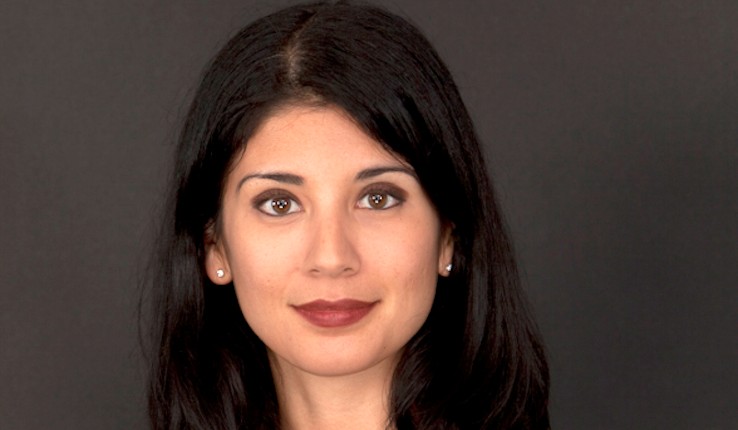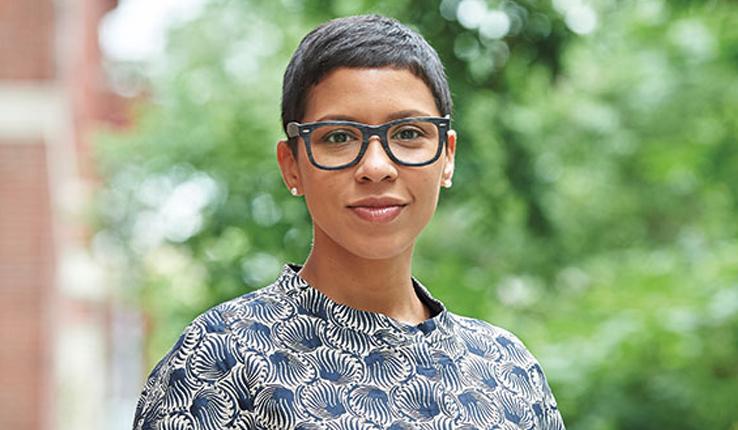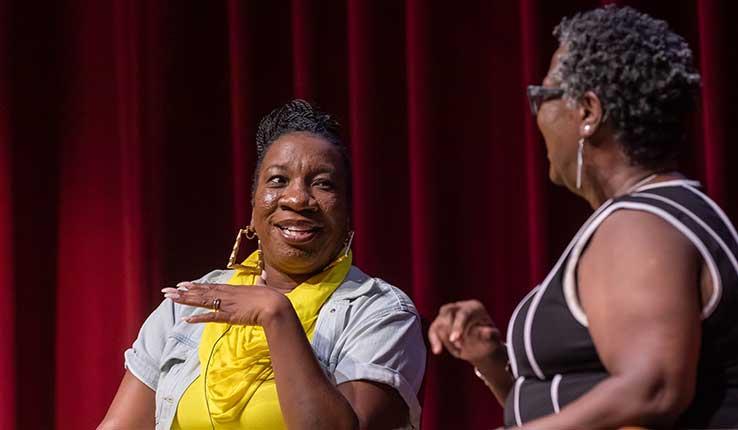Activist and legal scholar Mary Anne Franks virtually delivered the 41st Tresolini Lecture Thursday and encouraged listeners to think about what it means to honor the Constitution and how the nation has dealt with various interpretations of the document over the years.
“I’m speaking about the danger of bad faith and the Constitution, specifically in the sense of using the Constitution as a way to cover up for one’s own particular preferences,” said Franks, the Professor of Law and Michael R. Klein Distinguished Scholar Chair at the University of Miami. “I’m particularly concerned about the extent to which our current historical moment has become a moment of constitutional extremism.”
Franks, also an award-winning author and nationally and internationally recognized expert on the intersection of civil rights and technology, delivered the lecture titled “The Faithless Constitution: Rights and Responsibilities in the 21st Century.”
Her presentation coincided with Constitution Day, which commemorates the signing of the U.S. Constitution on Sept. 17, 1787 in Philadelphia.
“Today, many years later, we’re still governed by the same document and still ponder ways to make the American democracy more effective,” said Brian Fife, professor and chair of Lehigh’s political science department, in his introduction.
Franks recalled historical and recent events where constitutional interpretations presented a detriment to society. She pointed to the case of Rosika Schwimmer, a Hungarian-born pacifist and feminist who moved to the United States in 1921 hoping to escape prejudice in her own country and establish herself as a journalist.
But Schwimmer found herself hindered by her beliefs. Her application for citizenship was denied in 1924 because she refused to affirm that she would bear arms in defense of the United States. She appealed and won, but in 1929 the Supreme Court ruled against her.
Writing for the majority, Justice Pierce Butler said Schwimmer’s refusal to take up arms disqualified her for citizenship. Her claim of a “cosmic sense of belonging to the human family” suggested she was without any sense of nationalism and therefore incapable of allegiance to the United States.
Justice Oliver Wendell Holmes filed a memorable dissent in Schwimmer’s favor, emphasizing the importance of tolerance for dissidents and political speech.
Although Schwimmer remained in the United States for the rest of her life, she was considered stateless.
Franks also highlighted the Jan. 6 insurrection, when protestors, including those calling themselves the “Oath Keepers,” descended on the U.S. Capitol to protest the election of President Joseph Biden. “They call themselves the Oath Keepers because they are intending to invoke the oath of the Constitution–that is to protect the Constitution, to defend it against all enemies, foreign and domestic,” Franks said.
“They were clear that they were seeking to overturn the defeat of President Donald Trump in the 2020 presidential election. They were clear in their view that they should disrupt the joint session of Congress that was assembled to count the votes and formalize Joe Biden’s victory.”
The moment was extraordinary not just for the event itself, Franks said, but also because the same Constitution that says Schwimmer was a threat as a pacifist is held up to paint protestors who aim to take up arms against their own government as patriots.
“We know this is not just some fleeting sentiment on the part of some members of the public, but a sentiment that comes from some of the highest political offices in our country now,” she said.
What does that mean for those who want to be faithful to the Constitution, but decry the events of Jan. 6?
“Transcendence and sacred scriptures give us the notion that this isn’t about who we are or what we want, but it’s about some higher power, a higher power that cannot be questioned once we have invoked it,” Franks said.
Instead of taking that posture, she suggested listeners take a critical look at their own actions and ask themselves if they are attempting to make an exception for themselves or a group with which they identify.
She recalled the words of late Congressman John Lewis who said, “Democracy is not a state. It is an act, and each generation must do its part to help build what we called the beloved community, a nation and world at peace with itself.”
The Constitution is not divine, fixed or infallible, but a flawed document written by flawed people that excludes groups of people who are not white, wealthy and male, Franks said.
“But better men and women have since changed it, they have improved it, they have fought for it,” Franks said. “On Constitution Day, and every day, these are the people we can honor and emulate. These are the people who advocate for the vulnerable, the sick, the excluded and exploited. They are the ones risking their reputations, safety and lives to hold people in power accountable.”
The Rocco J. Tresolini Lectureship in Law was established in 1978, in memory of one of Lehigh’s most distinguished teachers and scholars, Rocco Tresolini (1920-1967), who served as professor and chair of the Department of Government.
Franks is the latest in a long line of luminaries to deliver the Tresolini Lecture, including journalist Carl Bernstein, public intellectual Cornel West, former U.S. Attorney General Janet Reno, the late U.S. Supreme Court Justice Antonin Scalia, former Watergate-era White House Counsel John Dean, Bush v. Gore attorney David Boies, and Innocence Project founder Barry Scheck.
Franks wrote the award-winning book, The Cult of the Constitution: Our Deadly Devotion to Guns and Free Speech. Last year, she was awarded a grant from the Knight Foundation for research on her second book, Fearless Speech, expected to be released in 2022.
Her work has appeared in the Harvard Law Review, the California Law Review and UCLA Law Review. She also authored numerous articles for publications like the New York Times, The Atlantic, The Washington Post and Newsweek.
Franks holds a J.D. from Harvard Law School as well as a doctorate and a master’s degree from Oxford University, where she studied as a Rhodes Scholar. She previously taught at the University of Chicago Law School as a Bigelow Fellow and Lecturer in Law, and at Harvard University as a lecturer in social studies and philosophy.
She teaches classes on criminal law, criminal procedure, First Amendment law, Second Amendment law, family law and technology.
Franks is also an Affiliated Faculty member of the University of Miami Department of Philosophy and an Affiliate Fellow of the Yale Law School Information Society Project.





